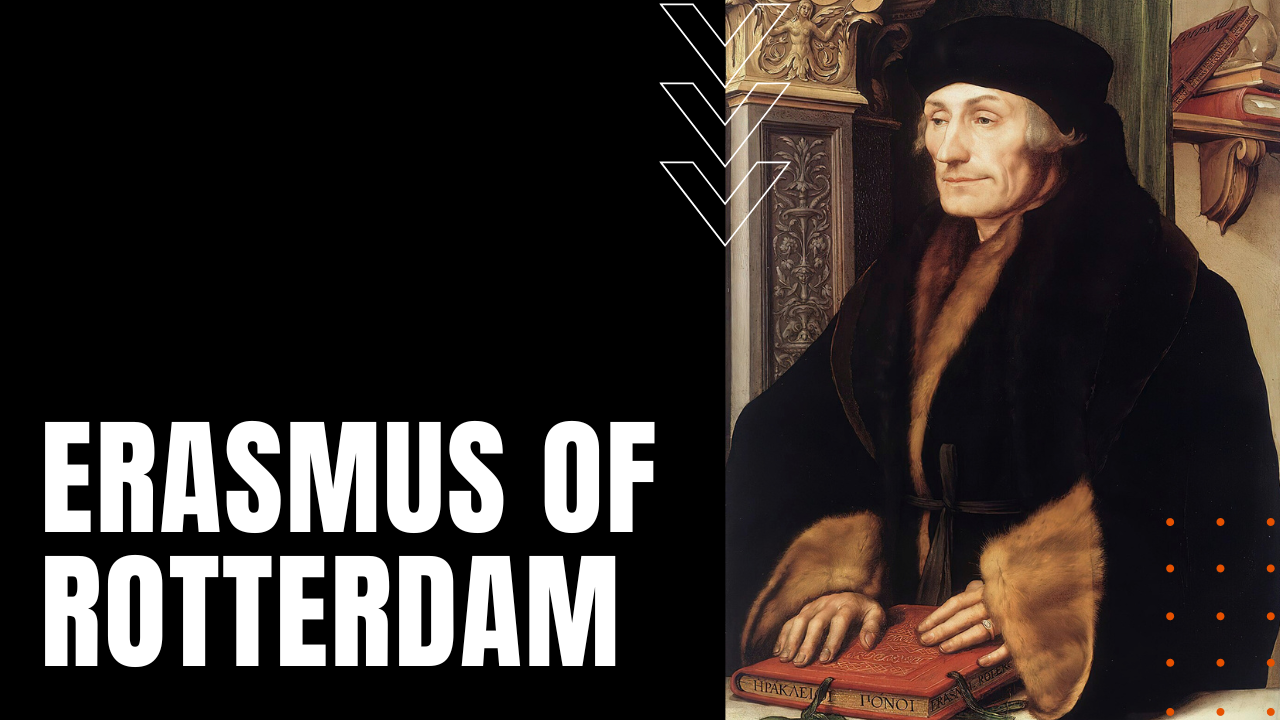Erasmus of Rotterdam

Born in 1467 Rotterdam Holland—the illegitimate son of a priest—Desiderius Erasmus or simply Erasmus lost both his unwed parents to bubonic plague in 1483. Receiving the highest education available to a young man of his time, Erasmus was ordained into the priesthood in 1492, after falling in love with a fellow canon, although in later life he would renounce homosexuality by condemning sodomy and praising married sexual pleasure between a man and a woman.
Influential Philosopher
Now considered one of the most influential philosophers of the Northern Renaissance, within his prodigious body of work, Erasmus reflected on a myriad of topics, including nature versus nurture, the complexities between words and objects, ideal forms of human governance and the nature of religious faith. Best described as a Christian Humanist, his philosophy of life combined Christian thought with classical traditions, promoting educational programs that called for docta pietas or learned piety, and Ad fontes, where he advocated for the study of biblical texts in their original languages of Hebrew, Greek and Latin.
A Life Abroad
Living, studying and teaching abroad for much of his life—having only lived in his namesake for a total of four years—Erasmus produced his pioneering edition of the Greek New Testament, while his other notable works include The Praise of Folly, Handbook of a Christian Knight, On Civility in Children, Julius Excluded and The Education of a Christian Prince. While many of his books were banned by the Catholic Church, his ideas and works experienced a robust revival during the Age of Enlightenment, when he was regarded as a progenitor to the philosophy of rationalism.
Heat Polemics with Luther
In his political writings, Erasmus advocated for consensus, compromise and peaceful cooperation—positions largely rejected by key thinkers of the Reformation. Erasmus also challenged Martin Luther’s sectarianism, sparking heated polemics between both men over heuristics or learning by self discovery, further taking issue with Luther’s view of the Bible as the inerrant word of God, instead stressing the importance of faith and devotion over biblical scholarship.
End of Life
When his strength began to fail in 1536, Erasmus accepted an invitation by Queen Mary of Hungary, the Regent of the Netherlands, to move from Freiburg to the Duchy of Brabant, which was then a region in the Holy Roman Empire in southern Holland, passing away on July 12th of that same year from a sudden attack of dysentery while on a visit to Basel Switzerland, making the life and philosophies of Erasmus of Rotterdam, an important voice in the Christian Humanism movement of the Northern Renaissance.
